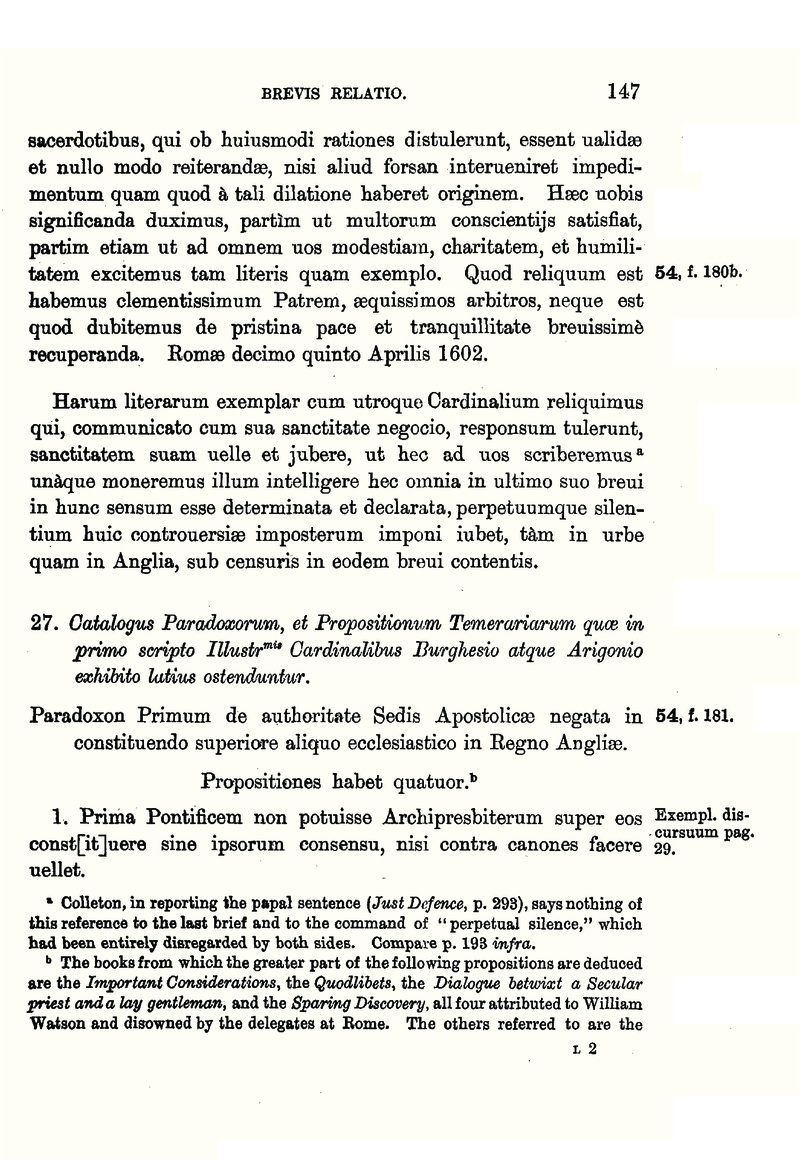No CrossRef data available.
Published online by Cambridge University Press: 24 December 2009

Page 147 note a Colleton, in reporting the papal sentence (Just Defence, p. 293), says nothing of this reference to the last brief and to the command of “perpetual silence,” which had been entirely disregarded by both sides. Compare p. 193 infra.
Page 147 note b The books from which the greater part of the following propositions are deduced are the Important Considerations, the Quodlibets, the Dialogue betwixt a Secular priest and a lay gentleman, and the Sparing Discovery, all four attributed to William Watson and disowned by the delegates at Rome. The others referred to are the Copies of certain Discourses, and the Hope of Peace by John Bennet. The two Latin books by Mush and Bagshaw escape censure. The oath of allegiance censured under Paradoxon Tertium, art. 6, is probably one of the forms printed below, p. 246. Compare the letter of Cecil to Watson, Feb. 1602.
Page 148 note a Compare the words of Urban VIII. to Cardinal Borgia in reference to the excommunications of Henry VIII. and Elizabeth, exacted at the instances of the house of Austria and the Spaniards, says the pope, “But with what success? The whole world can tell. We yet bewail it with tears of blood. Wisdom does not teach us to imitate Pius V. or Clement VII.,” etc. Quoted in Simpson's Campion, p. 371.